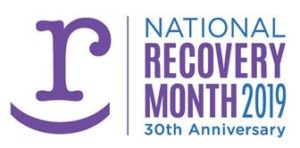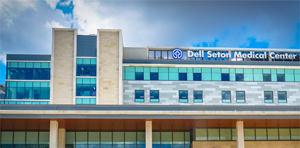TRANSPARENCIES
a monthly newsletter from Integral Care
a monthly newsletter from Integral Care

The recent landmark court decision in neighboring Oklahoma, in which Johnson & Johnson was ordered to pay $572 million in damages for its part in the state’s opioid crisis, is one of many. A federal case and another 400 state cases are being argued in courtrooms across the country, indicating that communities and governments are taking deeper action to respond to the opioid epidemic. While Texas and Travis County have not felt the impact of the opioid crisis to the extent that other communities in the United States have, we see shifting trends. We are seeing a statewide increase in heroin and synthetic opioid deaths. Drug and alcohol induced deaths in Travis County are higher than the state rate (but lower than the U.S. rate). Our community is paying attention to these trends in substance use disorders and taking steps to support recovery.
 September is National Recovery Month, a time to celebrate the fact that recovery – from both substance use disorder and mental illness – is possible. These are brain-based disorders that impact people from all walks of life. National statistics show that 45% of people with substance use disorder experience a co-occurring mental illness and vice versa. With proper treatment, people can and do recover.
September is National Recovery Month, a time to celebrate the fact that recovery – from both substance use disorder and mental illness – is possible. These are brain-based disorders that impact people from all walks of life. National statistics show that 45% of people with substance use disorder experience a co-occurring mental illness and vice versa. With proper treatment, people can and do recover.
The Sobering Center and Integral Care are partnering to complete a community needs assessment. This Alcohol, Tobacco and Other Drugs (ATOD) assessment will help our community better understand assets and gaps in Austin-Travis County. This is the first step towards updating our local plan, which can guide our community as we collaborate to address the needs in this area. A summit will be held this fall to share the assessment findings and plans for moving forward together. The needs assessment and resultant planning will examine what is working, as well as the gaps in our system for individuals experiencing or at risk of substance use disorders. Stay tuned for an announcement of the summit.
 One program that is very successfully addressing substance use disorders in our community is Dell Seton Medical Center and Dell Medical School’s Buprenorphine Team (“B-Team”). They are saving lives by identifying hospital patients with opioid use disorder, initiating medication-assisted therapy (MAT) during the hospitalization and connecting them to follow-up care at the MAT program, a collaboration between Integral Care and CommUnityCare.
One program that is very successfully addressing substance use disorders in our community is Dell Seton Medical Center and Dell Medical School’s Buprenorphine Team (“B-Team”). They are saving lives by identifying hospital patients with opioid use disorder, initiating medication-assisted therapy (MAT) during the hospitalization and connecting them to follow-up care at the MAT program, a collaboration between Integral Care and CommUnityCare.
In the area of planning, the Travis County Youth Substance Abuse Prevention Coalition (TCYSAPC) hosts summits on youth prevention-related topics, serves as an expert educational resource for local school districts, and leads projects such as Preventing Opioid Misuse Among Girls. Research shows that preventing substance use among teens and young adult reduces overuse or misuse in adulthood.
Finally, Integral Care is proud to operate as a Certified Community Behavioral Health Clinic (CCBHC), one of the first 8 in the state. Recognizing that behavioral health and physical health go hand in hand, we work to address our clients’ whole health. Because a drug or alcohol issue is often caused by or leads to mental illness, we address both disorders. I invite you to take a few minutes to be inspired by the hard work of our clients and staff. – Watch our recent video highlighting our care as a CCBHC.
This Recovery Month, let us celebrate the dedicated people across Austin-Travis County who work to help individuals reach their full potential and thrive. Let us also celebrate all people who have had the strength and resilience to walk through program doors and change their lives, showing us that recovery is possible.

David Evans
Chief Executive Officer
Road to Recovery
When individuals with mental health issues and substance use disorder have access to long-term residential care, they gain the tools to recover and reach their full potential. Road to Recovery, a strong collaboration between Integral Care and Downtown Austin Community Court (DACC), is a program for people who, in addition to their co-occurring disorders, experience chronic homelessness and involvement with our criminal justice system. The program – now in its 14th year – offers residential services for up to 3 months, aftercare for up to 3 months and ongoing support afterwards. Annually, they help approximately 40 members of our community move towards better health and well-being.

Integral Care’s Road to Recovery Staff
Upon entering, clients work with DACC and Integral Care case managers to determine an individualized treatment plan and set goals. They spend the first 30-45 days attending Integral Care’s Oak Springs Intensive Outpatient treatment program, focusing on life skills, like anger management and relapse prevention strategies. Clients may also be learning how to set up an email account, write a resume, and take the bus. Graduating to the second level of the program involves working a 12-step program with a sponsor and applying for jobs, with the support of dedicated program counselors and peer support specialists. In the third level, many clients are working a job and transitioning to their own home in the community or aftercare services. Notably, within this fiscal year, 60% of the individuals who successfully completed the full spectrum of their individualized programming plan and goals, are independently housed and employed or recipients of alternative supplemental benefits/income.
We are excited about an expanded version of the program – started with DACC in April – for people who are not yet ready to change their way of living or who are in the early stages of thinking about a change. Instead of fully engaging in the full program, they take the first step by committing to 2 days at Road to Recovery, which ideally leads to a week, then 30 days and a transition into the full program. This approach gives people a safe, supportive environment in which to consider this major life change of choosing recovery.
Road to Recovery gives people in our community an opportunity to write the next chapter of their lives to include renewed health and opportunity.
Downtown Austin Community Court
Next month, Integral Care and Downtown Austin Community Court (DACC) celebrate 20 years as partners on initiatives to improve how our community responds to and supports individuals who experience mental illness and/or substance use disorders. DACC is a problem-solving court that processes misdemeanors occurring in the downtown and UT West Campus areas. DACC’s jurisdiction also includes a portion of East Austin. While holding defendants accountable, they also help them improve health and reach permanent stability via the court’s Intensive Case Management Program. They are also significant advocates and are invested in seeing people in sometimes-desperate circumstances reach recovery. Our partnership is deep and multi-faceted.
 The court, its case managers and community outreach team take part in the coordination of care and treatment for individuals frequently seen in their court and served by Road to Recovery. One Road to Recovery graduate was the subject of a recent KVUE story, highlighting the success of our partnership and their hand in housing Road to Recovery clients.
The court, its case managers and community outreach team take part in the coordination of care and treatment for individuals frequently seen in their court and served by Road to Recovery. One Road to Recovery graduate was the subject of a recent KVUE story, highlighting the success of our partnership and their hand in housing Road to Recovery clients.
DACC is a key player in several other Integral Care programs, managing contracts for the Homeless Outreach Street Team (HOST) and Expanded Mobile Crisis Outreach Team (EMCOT). With HOST, Integral Care and DACC work alongside the Austin Police Department (APD) and Austin-Travis County Emergency Medical Services (EMS) to help adults living on the street connect to housing, case management, health care and substance use treatment. EMS, APD and Travis County Sheriff’s Office (TCSO), as well as other law enforcement agencies, can request EMCOT for real-time co-response for an adult or child in psychiatric crisis. DACC is also a sponsor and planning council member of the Reentry Roundtable, a group of community stakeholders working to address the challenges faced by people who have experienced incarceration or have criminal histories. This involves advocating for policies and practices (like “ban the box”), which directly and positively affect justice-involved persons and their families.
There’s progressively been more and more energy in our community for helping the specific population that our court prioritizes. We rely heavily on Integral Care because so many of the people we serve have mental health and substance use disorders. Our partnership with Integral Care has evolved significantly over the years. And I see the partnership growing even deeper. – Peter Valdez, Court Administrator
Integral Care values the integrity, dedication and passion of the DACC staff. We are grateful to work alongside them to support better outcomes for people who may be in a revolving door with the criminal justice system. Working together, we can help people reach their full potential.
August 2019: Working Together for Child & Youth Mental Health
July 2019: Legislative Wrap-Up – Some Bipartisan Wins for Healthcare
June 2019: Strengthening Access for Veterans and the Entire Military Family
May 2019: Women and Mental Health
April 2019: Legislative Session Status Report
March 2019: Making Opportunities for Recovery More Accessible
February 2019: Recovery is Possible
January 2019: Stronger Outcomes Through Collaboration
December 2018: Looking ahead to the 86th Texas Legislature
November 2018: How Tech is Changing the Face of Mental Health
October 2018: A Few Questions Could Help Save a Life
September 2018: Anyone Can Save a Life
August 2018: A Milestone Moment
July 2018: Equity in Mental Health Care for All
June 2018: Expanding Services for Veterans
May 2018: Your Mental Health Toolkit
April 2018: Time of Terror Calls for Increased Emotional Support
March 2018: Stopping the cycle of incarceration for individuals with mental illness
February 2018: Equity in mental healthcare for everyone
January 2018 : Improving Mental Health Through Partnership & Collaboration
December 2017: Strength Through Community
November 2017 : Healthy Lifestyles Improve Well-Being
October 2017 : National Child Health Day
September 2017 : Strengthening Families and Communities